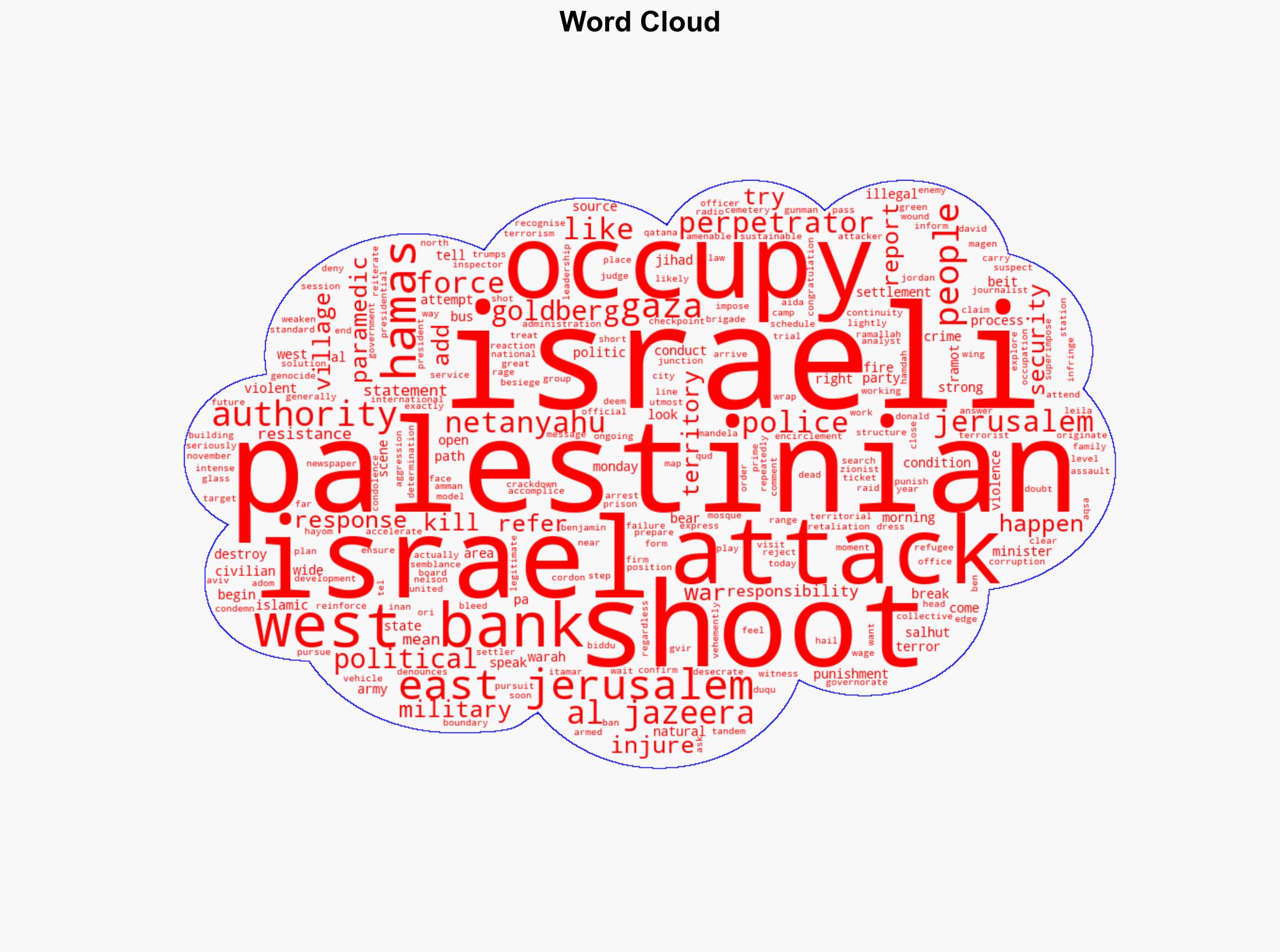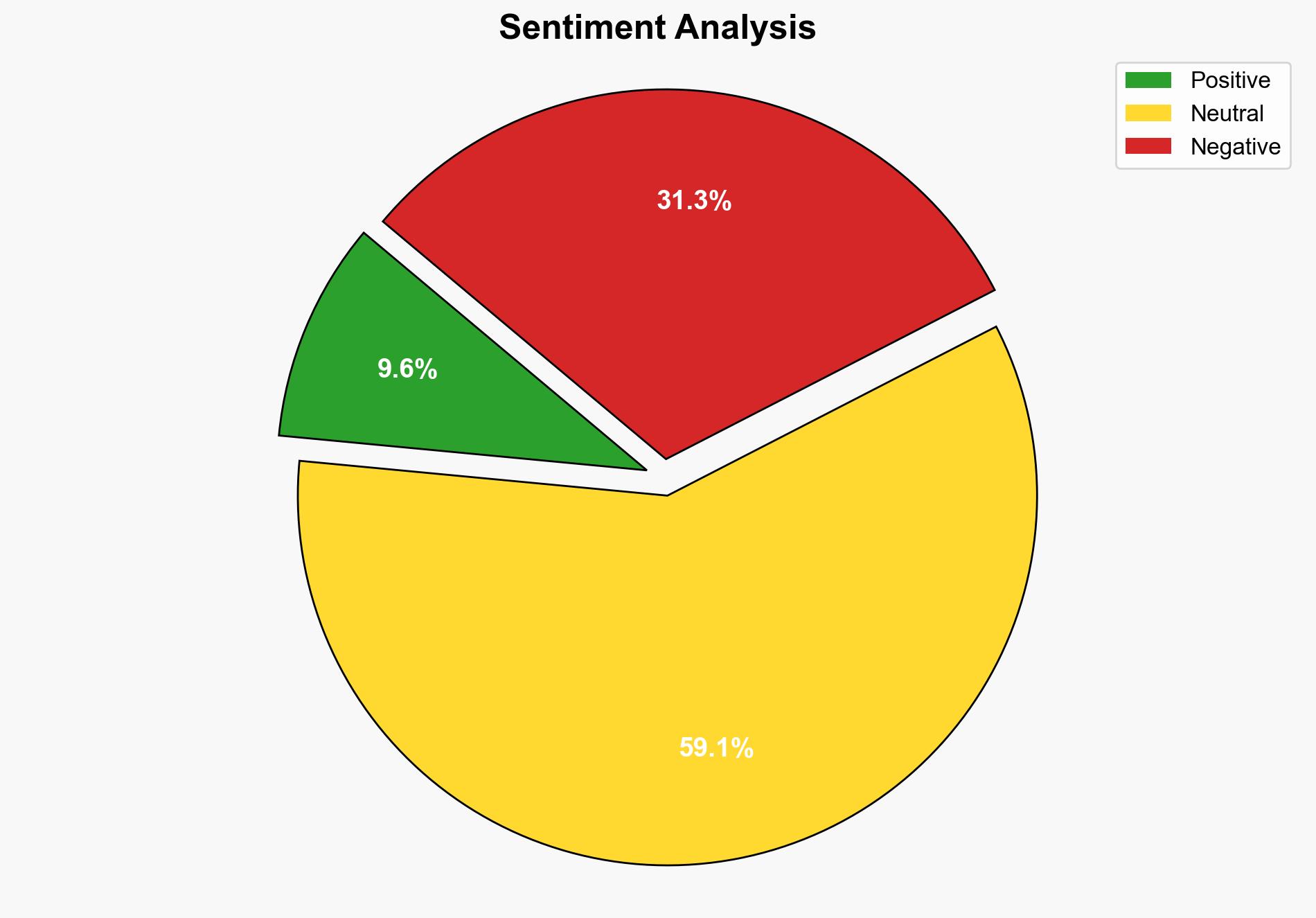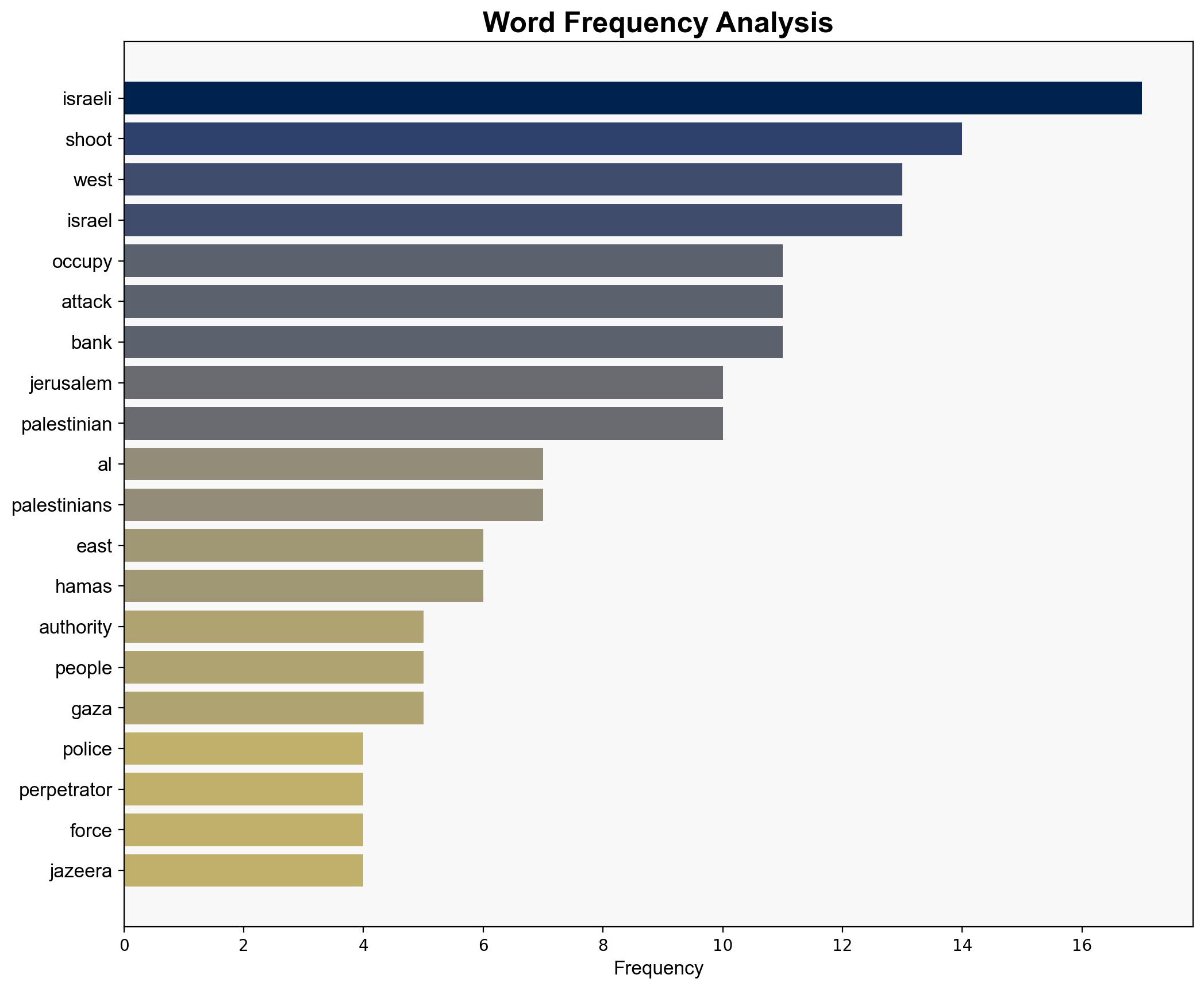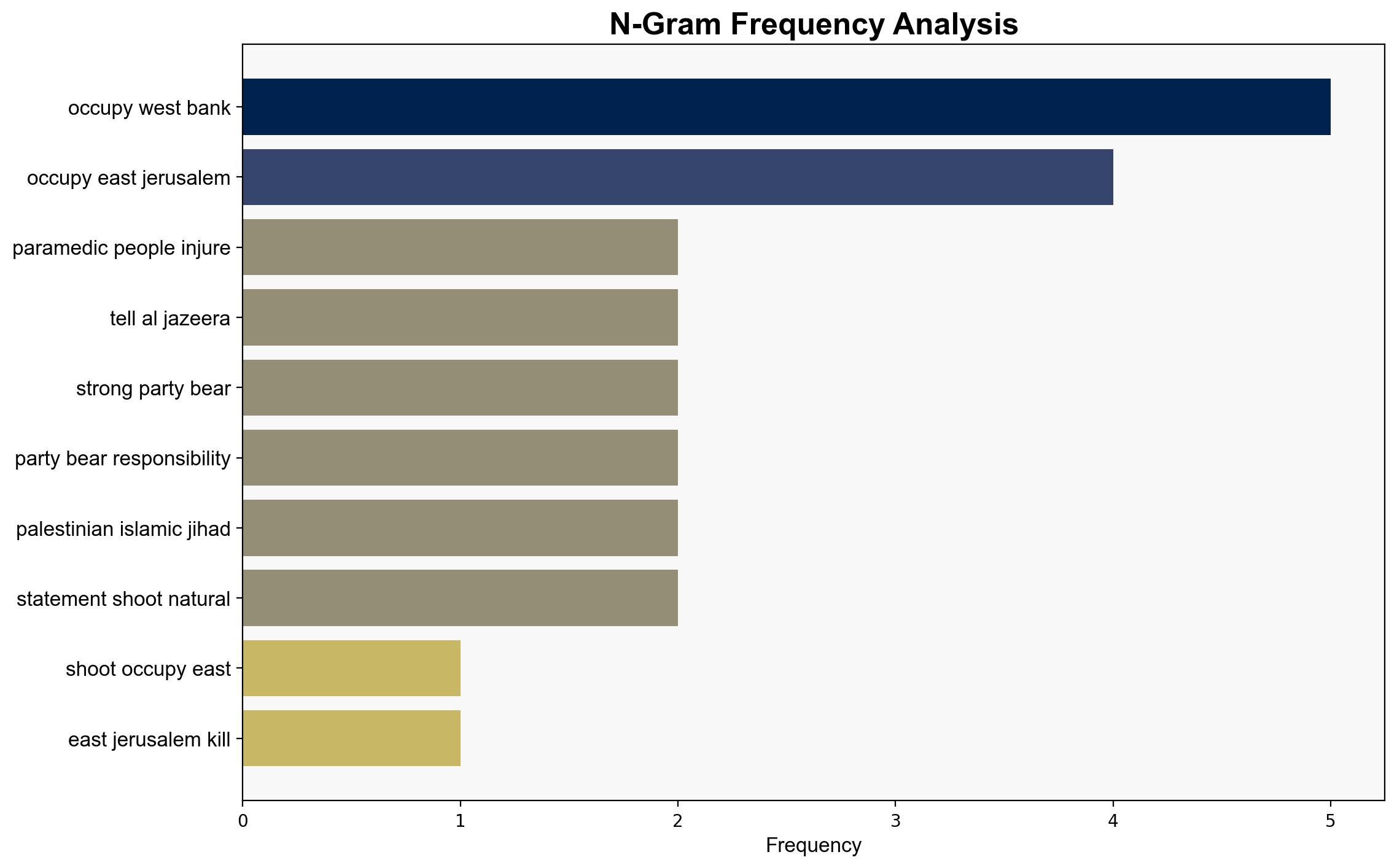Shooting in occupied East Jerusalem kills four Israeli authorities say – Al Jazeera English
Published on: 2025-09-08
Intelligence Report: Shooting in occupied East Jerusalem kills four Israeli authorities say – Al Jazeera English
1. BLUF (Bottom Line Up Front)
The most supported hypothesis is that the shooting in East Jerusalem is a coordinated act of terrorism by Palestinian militants in response to Israeli military actions in Gaza and the West Bank. Confidence level is moderate due to limited direct evidence of coordination. Recommended action includes enhancing security measures in sensitive areas and increasing intelligence operations to preempt further attacks.
2. Competing Hypotheses
1. **Coordinated Terrorist Attack Hypothesis**: The shooting is a planned terrorist attack by Palestinian militant groups as retaliation for Israeli military actions in Gaza and the West Bank. This is supported by the timing of the attack and statements from groups like Hamas.
2. **Spontaneous Lone-Actor Hypothesis**: The attack was conducted by a lone actor or a small group without direct coordination with larger militant organizations, driven by personal or ideological motivations. This is suggested by the lack of immediate claims of responsibility and the nature of the attack.
3. Key Assumptions and Red Flags
– **Assumptions**: The first hypothesis assumes a high level of coordination and communication among militant groups, which may not always be the case. The second hypothesis assumes that individuals can execute such attacks without broader organizational support.
– **Red Flags**: The lack of immediate, clear claims of responsibility from major groups could indicate either a strategic decision to remain ambiguous or a lack of direct involvement.
– **Blind Spots**: Potential underestimation of the role of social media and informal networks in facilitating such attacks.
4. Implications and Strategic Risks
– **Escalation Risk**: Increased military actions by Israel could lead to further retaliatory attacks, escalating violence in the region.
– **Geopolitical Impact**: Heightened tensions could affect international diplomatic efforts and impact regional alliances.
– **Psychological Impact**: Continued attacks may lead to heightened fear and tension among civilian populations, affecting daily life and economic activities.
5. Recommendations and Outlook
- Enhance intelligence-sharing mechanisms with regional partners to identify and disrupt potential threats.
- Increase security presence in vulnerable areas, particularly near settlements and border crossings.
- Engage in diplomatic efforts to de-escalate tensions and address underlying grievances.
- Scenario Projections:
- Best Case: Successful de-escalation through diplomatic channels reduces immediate threat levels.
- Worst Case: Continued cycle of violence leads to broader regional conflict.
- Most Likely: Sporadic attacks continue, with intermittent escalations and temporary lulls.
6. Key Individuals and Entities
– Benjamin Netanyahu
– Itamar Ben Gvir
– Hamas
– Palestinian Islamic Jihad
7. Thematic Tags
national security threats, counter-terrorism, regional focus, geopolitical tensions




